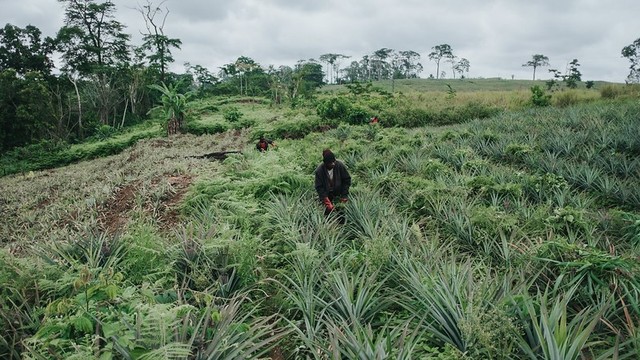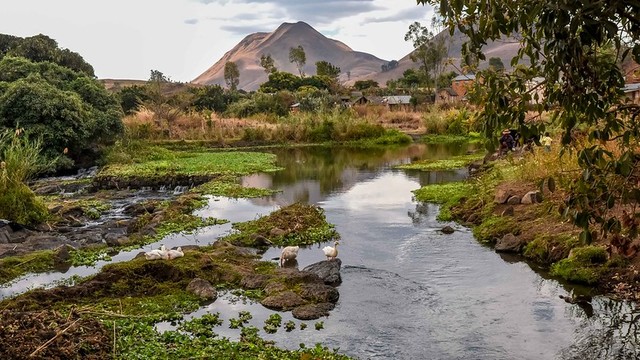South-South capacity building for human-elephant conflict management
Human-elephant conflict is a major challenge for both conservation and livelihoods in Africa. IIED is supporting a South-South learning approach where Honeyguide provides training to community rangers from Namibia and develops interactive training materials.
A sign alerting of nearby wildlife at a national park (Photo: IIED)
Human-elephant conflict is on the rise across Africa as people and elephants compete for space.
In Southern Africa, where elephant populations are high, this problem is particularly pressing. Poor rainfall has also exacerbated the problem as humans encroach further into wildlife areas to meet subsistence needs, and elephants move ever closer to community water points and farmland.
In Namibia, the community-focused organisation Integrated Rural Development and Nature Conservation (IRDNC) has used electric fencing and community patrolling to protect farms from elephants. But this has had limited success and pressures are constantly increasing.
By contrast, in Tanzania, another community-focused organisation, Honeyguide, has had extraordinary success in supporting farmers on the edges of community owned and managed wildlife management areas (WMAs) to deal with elephants.
Honeyguide is a Tanzanian grassroots organisation with a remarkably effective community-owned approach. It has developed a toolkit for deterring elephants including chilli bombs, firecrackers, torches and vuvuzelas. Used in a particular sequence these tools have proved to work as elephant deterrents. In the areas of Tanzania where the toolkit approach has been implemented, there has been as much as a 90% decrease in crop destruction.
What is IIED doing?
IIED is supporting both IRDNC and Honeyguide so they can exchange their knowledge and experiences. Honeyguide is providing in-person training to community rangers from Namibia to familiarise them with their toolkit and to help them adapt it for use back home.
IIED has been working on human-elephant conflict both through its implementation of a Darwin Initiative project on insurance for human-wildlife conflict, and through participation in the IUCN Human Wildlife Conflict and Coexistence specialist group and various community conservation forums in Southern Africa.
IIED recognises that IRDNC is not alone in wishing to build its capacity to manage human-elephant conflict and will also be working with Honeyguide to develop training materials that can be widely disseminated to other community-focused conservation organisations.
Taking action
In 2023, Honeyguide visited Namibia (PDF) to scope the potential for deploying their approach to human-elephant conflict mitigation, and the video below shows highlights of the trip.
IRDNC and Namibian community rangers also visited Tanzania (PDF) to learn how to use the Honeyguide toolkit.
Additional resources
Video: Highlights of the visit by IRDNC to Honeyguide, addressing human-elephant conflict in Namibia
Report: Namibian Community Game Guards and Rangers' Educational Visit to Tanzania (PDF) (2023)
Report: Honeyguide’s scoping visit to Namibia (PDF) (2023)
Article: IUCN Species Survival Commission Guidelines on human-wildlife conflict and coexistence (2023)
Video: Conservation of wildlife: how can insurance help? (June 2022)



